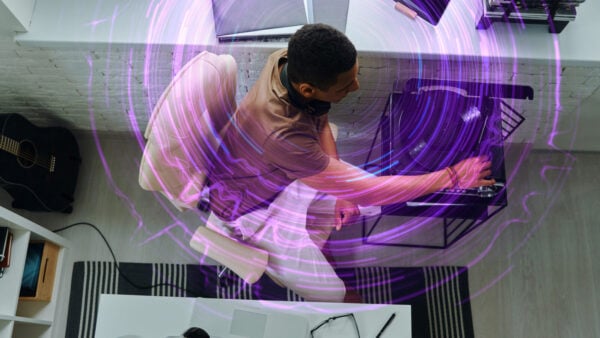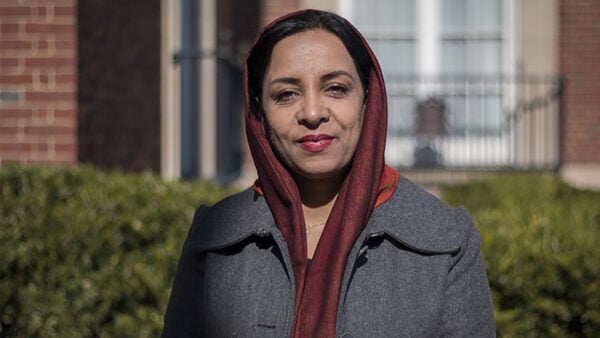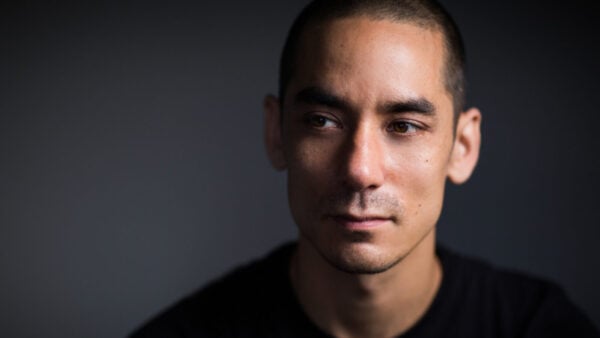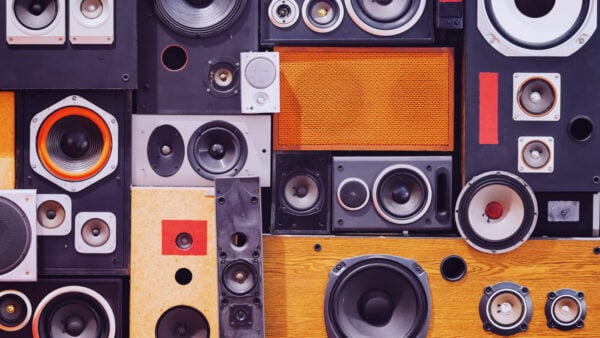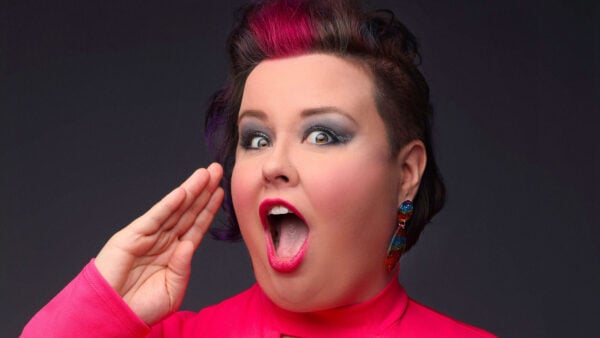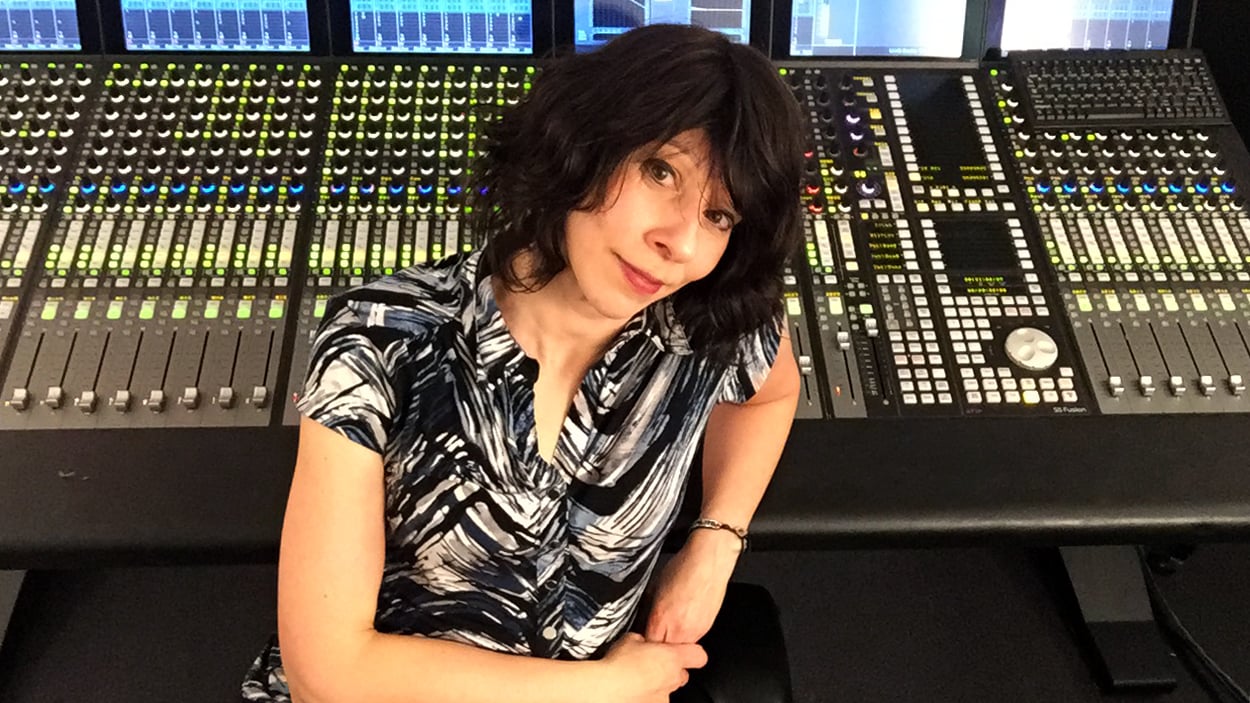
Mary Mazurek seated in front of the recording console in the control room of the Fay and Daniel Levin Performance Studio at WFMT.
This piece was adapted from a speech given by Grammy Award-nominated audio engineer Mary Mazurek on September 12, 2018 at the Recording Academy Task Force On Diversity and Inclusion at the Museum of Contemporary Art in Chicago.
My name is Mary Mazurek, and I am a recording engineer, an artist, an educator, and a Ph.D. candidate. But most of all, I am a woman working in a very male-dominated field.
Despite that, I consider myself to be very fortunate for my 25-plus-year career. I have had the pleasure of working with a number of great organizations including WFMT and the Lyric Opera of Chicago, as well as many brilliant artists, including the Kronos Quartet, the Vienna Boys Choir, cellist Yo-Yo Ma, and B-3 greats Charles Earland, Johnny Hammond Smith, Jimmy McGriff, and Dr. Lonny Smith. I have worked with the author Salman Rushdie, the legendary historian, writer, and radio personality Studs Terkel, and even a member of the Supreme Court, Justice Ruth Bader Ginsburg. My skills and experience are represented on Liquid Melancholy, an orchestral recording on Cedille Records. Delmark is also due to release a recording that I engineered.
I've enjoyed a wonderful career. But it almost didn't happen.
You see, the Woman's Audio Mission notes that today, women make up less than 5% of the audio industry, but I did not know that when I was declaring my major as an undergrad music student at DePaul University in 1989. I was intrigued by the relatively new major called “Sound Recording Technology.” I really didn't know what it was, but I thought, "I can do that!"
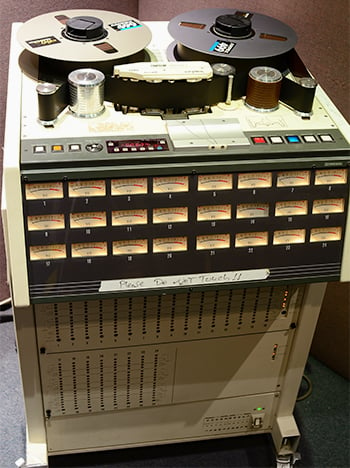
An Otari MX-80, a multi-track reel-to-reel audiotape recorder. My first exposure to multi-track recording was at DePaul University in the Sound Recording Technology program.
I’m glad I followed my intuition because I had an amazing experience. Fortunately for me, Murray Allen, owner of the legendary Universal Recording Studio here in Chicago, one of the three big studios at the time, headed up the academic program. One day before class, I wandered into his office, and asked, "Murray, can I assist here?" He looked at me for a moment and said, "Okay."
I was immediately put to work. I assisted on jingle sessions and worked with house music producer Marshall Jefferson. Through this relationship, I occasionally assisted with audio, acting as an A2 on the Oprah Show. I even got to pin a microphone on Arnold Schwarzenegger!
But the experience that I cherish the most was assisting an engineer at Universal, a woman named Lorita de la Cerna. I enjoyed working with her on the Foley recording for the restoration of Orson Welles’s Othello. To put it kindly, Lorita was tough on me. She warned, "These guys don't pull punches. They're not going to cut you any slack." I really didn't know what she meant. Everyone that I had worked with at Universal was very nice and generous.
In 1991, Universal Recording Studio closed its doors, and Lorita left for LA. I was finishing up my undergraduate degree and felt confident that I would land a job in the industry. So, I diligently and enthusiastically sent out resumes to every studio, radio, and TV station in Chicago. And I waited…and waited…and waited...
In an attempt to keep my enthusiasm high, I took the initiative and began to follow up with phone calls. Answering machine... answering machine...another answering machine… Finally, someone picked up! It was one of the remaining three big Chicago studios! Excitedly I said, "Hello! I sent you a resume. I feel really excited about the opportunity to assist at your studio!" The response I received was, "We don't hire women engineers, but you can answer the phone if you’d like." After my initial shock wore off, the only response that I could muster was, "No thank you."
I now understood what Lorita meant. My enthusiasm began to get lost in the mix as things like, "You're a woman, you can't be an engineer. You're second-class," were overdubbed, becoming the mental tape that played in my head from that point.
Still, I wanted to work as a recording engineer so badly that I was willing to compromise part of my being. I took those qualities that I equated with being a woman, like empathy, intuition, compassion, connection, and kindness, as weaknesses and shut them down. Clearly, being a woman was a detriment. I just wanted to fit in, so I tried to be like one of the guys. It worked, and with some hustling, I began working — and working a lot. However, there was a problem. I was living my life inauthentically, and that came with consequences.
I began to notice that though I was working, my male engineering colleagues were getting the better gigs. Even in the Recording Academy, after serving repeatedly undefeated as governor, it became clear that the male engineers were being selected for higher offices on both the local and national levels. I was not even being slated. Because of this, more overdubs were added to my tape. "My voice as a woman engineer is not as valuable as a man's." I pretended that I didn't care, that it didn't matter or bother me, but it did. I suppressed my emotions and continued to live an inauthentic life. Doing so came with a price.
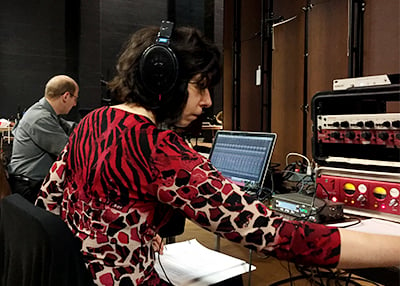
Backstage at the James Lumber Center for Performing Arts with producer Jim Ginsburg during a recording of Liquid Melancholy.
Hashimoto's, Crohn's disease, and lupus were all discussed in my doctor's office, as the tape looped in my mind, "You're a woman.” “You're second class.” “What makes you think that you can change anything?!" Finally, I said, "STOP!" "Wait a second, I'm a recording engineer, and I can rerecord this tape!"
So, that's what I did. I began to erase the negativity, and my initial enthusiasm began to surface. I then started to overdub a new narrative where feminine qualities like empathy, intuition, compassion, and kindness were strengths that benefited my work. Life began to get better.
Times change, and the studio that once told me that they didn't hire women engineers closed its doors many years ago. As my 50th birthday grows ever closer, and I pass my 25th year in the industry, I now realize my value and my voice. I continue to get better at living a more authentic life, while at the same time being a woman recording engineer. Often, I ask myself as a recording engineer, educator, and woman, "How can I make it better for young women who want to enter into this industry?" "How can I encourage them to show up authentically and share their gifts?"
With that, I pose the question to the greater community, "How can we welcome and support young women who want to enter into this industry as recording engineers?”
As I start my twenty-third year of teaching in the Audio Arts and Acoustics program at Columbia College Chicago, I feel a bit disheartened because the numbers are still so low. Only 2 of my students are women.
We have much work to do, but this is a good start.
Mary Mazurek began at WFMT in 1993, working initially as a board operator, then quickly took over as the engineer for the Dame Myra Hess Memorial Concert broadcasts, a role she still has today. In addition, she now serves as the engineer and music producer for WFMT’s signature program Live from WFMT, as well as the engineer for Impromptu. She is responsible for the majority of the live music heard on the station. She has also been involved with the Recording Academy since 2001. She now serves as the chairperson for the Classical Task Force for the Chicago Chapter.
On December 7, 2018, Mary Mazurek was nominated for a Recording Academy Grammy Award for Best Engineered Album, Classical for her work on Liquid Melancholy — Clarinet Music of James M Stephenson on Cedille Records. Read more here.
Mary Mazurek spoke at the Recording Academy Task Force On Diversity and Inclusion, which took place on September 12, 2018 at the Museum of Contemporary Art in Chicago. The event was hosted by Task Force Chairperson Tina Tchen, currently of Buckley Sandler LLP, who served as former First Lady Michelle Obama’s Chief of Staff and was the Executive Director of the White House Council on Women and Girls. Also in attendance were President and CEO of the Recording Academy Neil Portnow and Chairman of the Board of Trustees John Poppo.

